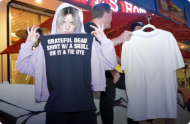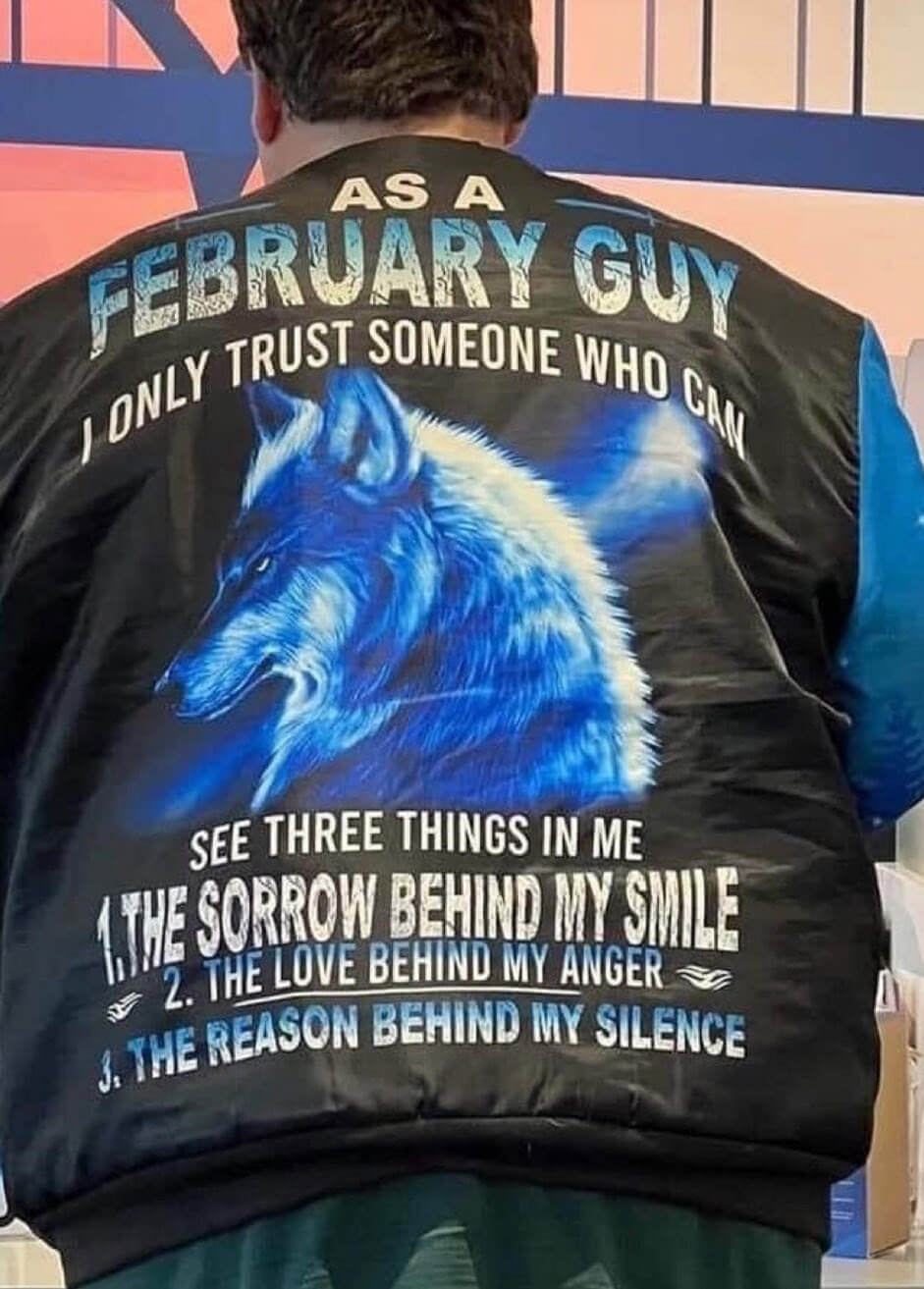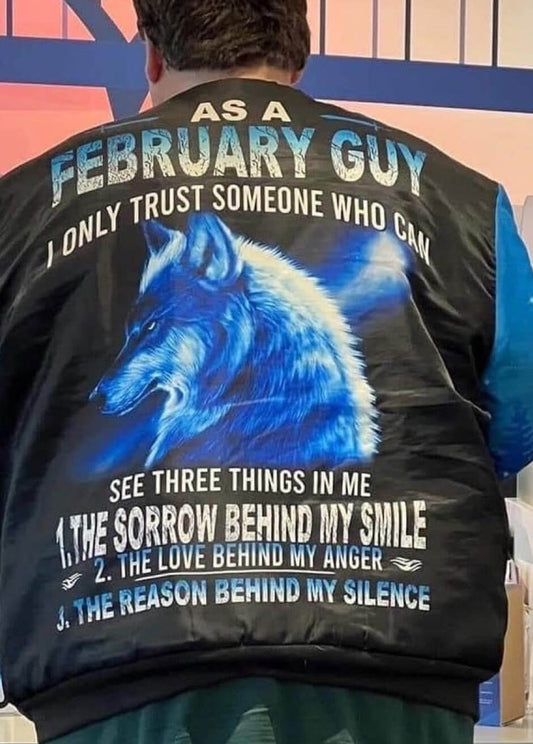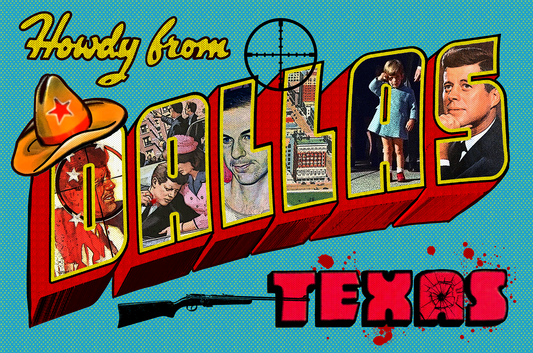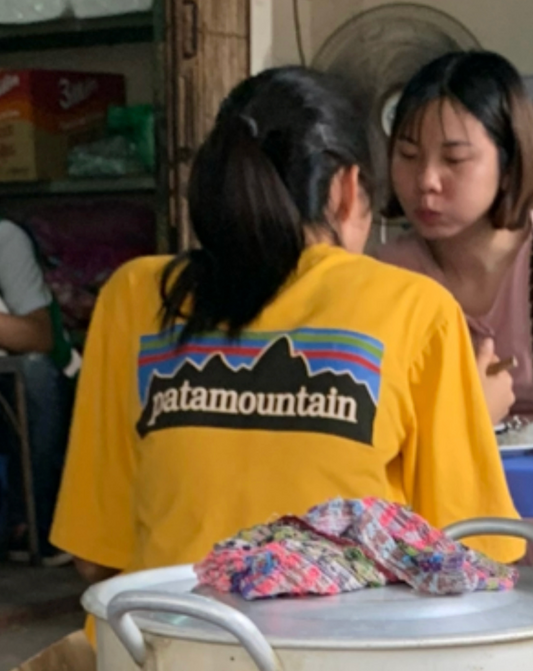HELLO!
You’ve seen them before; those ultra-specific, hyper-targeted shirts that fill the margins of your Facebook page, eating the cookies from your browser and shitting out shirts that look like a mad-libs made just for you. In the last decade, the targeted T-shirt has gone from a novelty to an unfortunate cultural staple. Instagram account @targetedbullshit is an excellent archive for these shirts, and @specificlads has created a bevy of parodies that, frankly, aren’t easily distinguishable from their ridiculous referents.
But who wrought this hell? Who invented the targeted T-shirt?


Enter: Michael Fowler. A veteran of the T-shirt game, Fowler began screen-printing his own tees while in high school in the mid ’80s. He paid his way through college by selling tie-dye shirts and wall-hangings at Grateful Dead shows. In 2004, Fowler moved to Australia and started a T-shirt company called “Blank Apparel,” which he still runs today. On his website, Fowler lists his achievements in the industry. Among them, he states that he: “pioneered (c. 2009/10) command line and cloud computing generated t-shirt designs that generated 1000s of daily orders,” and that he, “According to some ... started the modern personalised tees phenomenon.”
Notably, he omits the specifics of this contribution, including the company he started in the late ’00s (AKA the Naughty Aughties). It was another T-shirt house called Solid Gold Bomb. Initially, SGB produced fairly run-of-the-mill slogan T-shirts. Then, in 2011, Fowler came up with what seemed to be a brilliant idea: using technology to create a nearly infinite variety of custom shirts.
He wrote a simple computer script to do the following:
- Start with a phrase (e.g. “I’m not ___, I’m a ____“)
- Scan a database of digital dictionaries, compiling a total of 220,000 words
- Formulate a massive list of phrase variations with these words
- Generate product images of t-shirts with the phrases on them


In thinking of the perfect template to improvise upon, Fowler settled on “Keep Calm and Carry On.” The phrase derives from a propaganda poster produced by the British government during WWII. Once implemented, the magical algorithm brought Solid Gold Bomb’s product count from around 1,000 to 22 million available shirts. Soon, the company was taking in nearly 2,000 orders a day through Amazon.com.
As fictional mathematician Ian Malcolm, portrayed by a very sexy Jeff Goldblum, says in Jurassic Park: “Your scientists were so preoccupied with whether they could, they didn’t stop to think if they should.”
Fowler’s clever but short-sighted idea resulted in thousands of shirts appearing on Amazon.com with unsavory and some very misogynistic slogans. Solid Gold Bomb was swiftly banned from selling on Amazon, and its orders plummeted to three a day. The company collapsed shortly thereafter.


But Pandora’s box had been opened. In the aftermath of Gold Bomb’s explosive run, innumerable companies have sprung up to lazily capitalize on algorithms to sell T-shirts, and they have been welcomed by the Facebook moms and angry uncles of the world.
This is how it works: the T-shirt companies purchase ads from Meta, which allows them to access user data to cater the product offerings to match all the available pieces of individual’s identities – name, birthday, birth place, relationship status, likes and interests, etc. The result? Shirts like this.


Sadly, we know that people really do buy these. But why? What is attractive about the insanely specific, targeted T-shirt? Perhaps it is self-affirming to have your most prominent characteristics enumerated and printed on your chest, so that you can walk around announcing yourself, no matter how indiscernible you are from the crowd. Even in a mass of humans wearing graphic tees, you retain your individuality.
Perhaps the salience of these shirts exists not in the listing of the features, but in the phrases at the end of the slogans, tying all of your mundane characteristics together, confirming that you are more than the sum of your parts. That you truly are special. That these shirts are offered to consumers primarily on the Internet seems no coincidence. In the turgid, rapid waters of online, a T-shirt that assures you that you’re special, you’re a star and you’re worth it – is like a life raft that buoys you to the surface.
The shirts excuse the worst of our qualities, reconcile the baser impulses that the Internet evokes from us.
I’m a bitch, but it’s only because I was born in June and I like Game of Thrones. I will hunt down anyone who tries to date my daughter like I’m Liam Neeson, but it’s only because I’m such an awesome Dad.


The hyper-specific T-shirt is the perfect, consumerist symbol of the Internet age.
It offers a way to identify oneself explicitly, a form of individuation wholly dependent on mass media analogy. I’m a Star Wars fan and I drink wine and I know things and I’m a Gryffindor and I can’t stop drinking wine. I can’t help but wonder if there’s a healthier way to consume media, which integrates characters and stories in a way that gives insight into ourselves and our humanity, rather than offering us shallow signifiers to validate our existences (and often the darker side of our nature).
Maybe we could see our mass media myths as collectivizing forces, rather than ways to differentiate ourselves from each other. Certainly, it’s important to know yourself, but perhaps it’s also good to recognize your relative insignificance, and your participation in something bigger, something that isn’t specifically designed around your whimsical personality. I have to admit, the way algorithms dictate our media, and the acceleration of AI in the last year fills me with pessimism for the future of the human soul.


